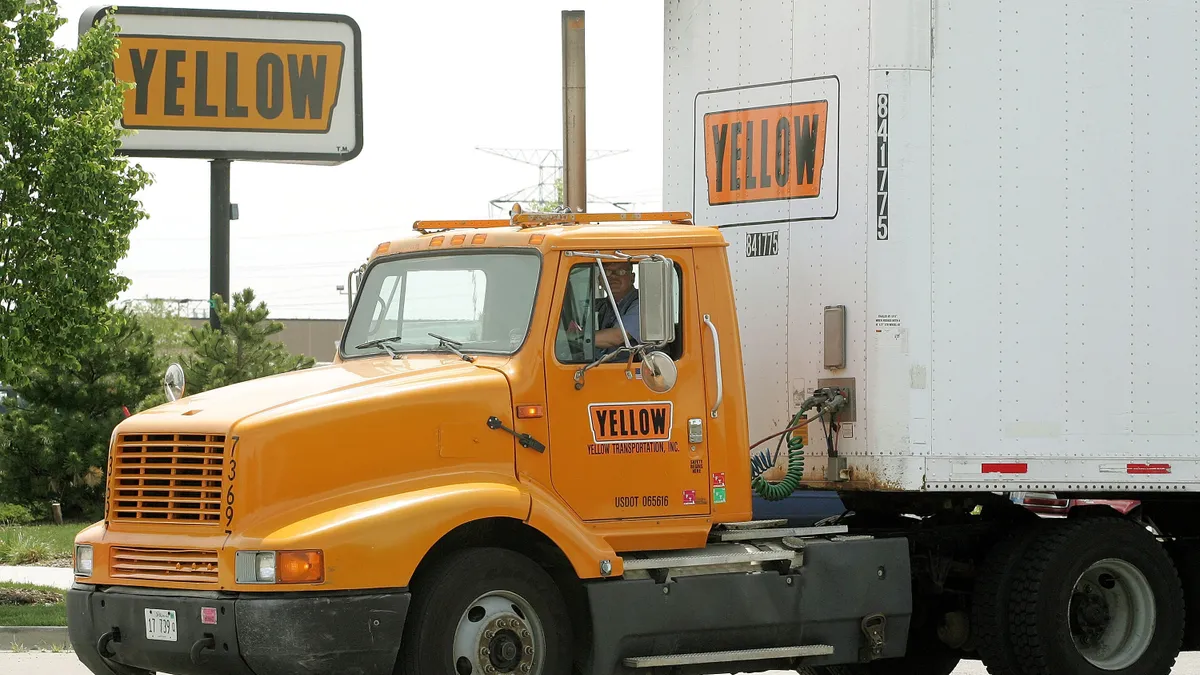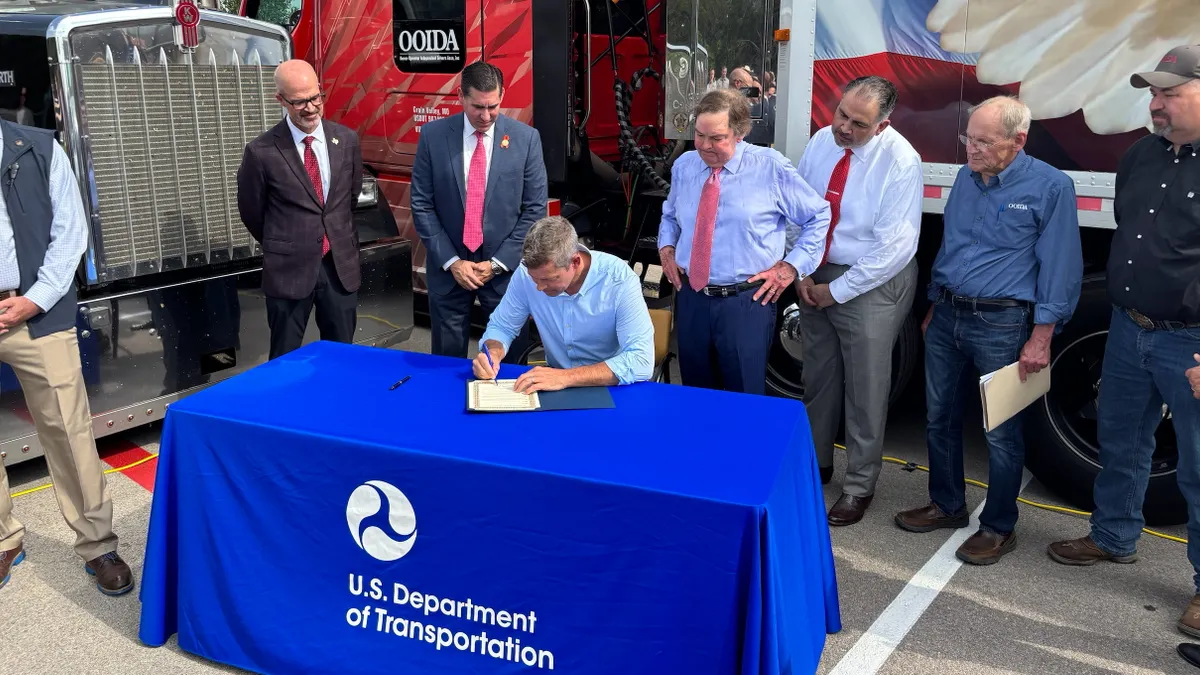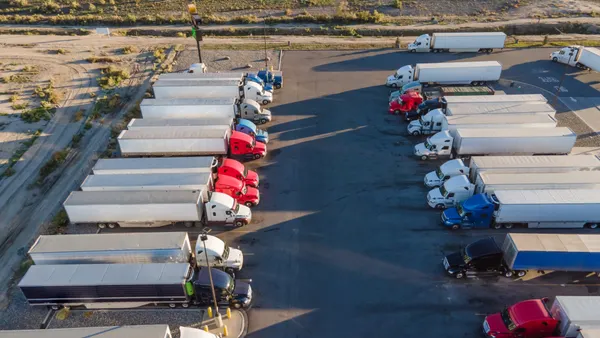Editor’s note: This article is the second in a series of stories based on an exclusive Trucking Dive interview this month with ABF Freight President Seth Runser. Read the first installment here. Want these types of stories in your inbox? Sign up for the Daily Dive — it’s free!
When Yellow Corp. shuttered its operations, ABF Freight wasn’t only a destination for shippers looking for an alternative.

About 30,000 laid-off drivers, mechanics and other employees were left looking for a new job. Many sent resumés to ABF Freight.
The Fort Smith, Arkansas-based carrier — which became the nation’s largest remaining unionized LTL carrier with Yellow’s demise — has hired between 300 and 400 former employees of Yellow, President Seth Runser told Trucking Dive in an interview.
“We've gotten a lot of applications, and really, we're hiring in strategic locations where we see growth, or we see opportunity,” Runser said. “We continue to evaluate that on a week-to-week basis.”
ABF Freight, a 100-year-old, ArcBest Corp.-owned LTL carrier with a five-year union contract in place, was a natural destination for workers seeking stability after being laid off by Yellow.
Yellow’s experienced drivers in Dallas; Atlanta; Austin, Texas, and other in-demand markets are helping ABF Freight to backfill retirements of its own longtime workers, Runser said. The carrier employs many 30- or 40-year drivers and other employees, said the president, who signs each retirement letter.
Runser credited ABF Freight’s company culture with helping successfully negotiate a contract for its roughly 8,600 unionized employees amid the chaotic Teamsters fight that immediately preceded Yellow’s demise.
The collective bargaining agreement includes improved wages and benefits, additional holidays, and prohibitions against inward-facing cameras, audio recorders, body and biometric sensors or driverless autonomous vehicles.
It has won accolades from Teamsters General President Sean O’Brien, who said it “will set the tone for national freight contracts moving forward.”
Runser said the union contract “really provides stability — not only for our employees, but also for our customers — at a time when we continue to experience rapid change.”













